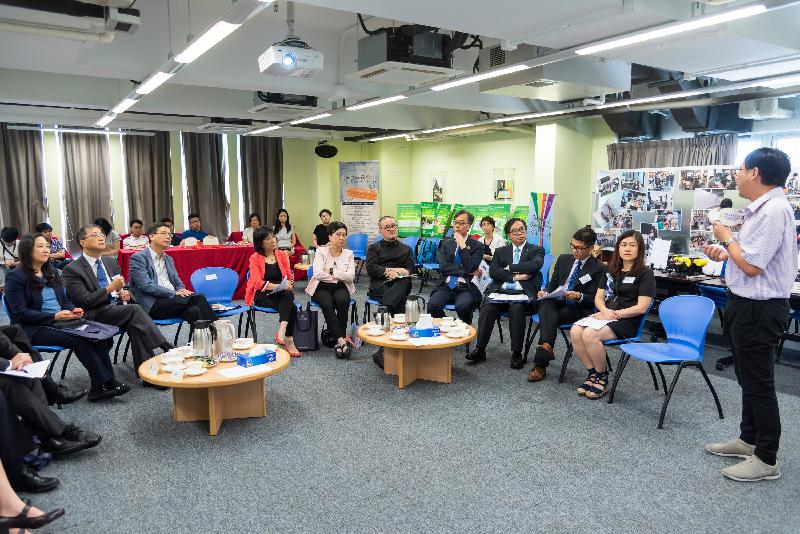CHP investigates outbreak of red-eye syndrome at residential care home for persons with disabilities
The Centre for Health Protection (CHP) of the Department of Health (DH) is today (June 26) investigating an outbreak of acute infectious conjunctivitis (ACJ), commonly known as “red-eye syndrome”, at a residential care home for persons with disabilities (RCHD) in Tung Chung and hence appealed to members of the public to maintain good personal and environmental hygiene against ACJ.
The outbreak involves 18 residents and two staff (16 men and four women) aged 29 to 57, who have presented with eye redness since June 5. All patients sought medical attention and one required hospitalisation. All of them are in stable condition.
The conjunctival swab of one resident tested positive for adenovirus upon laboratory testing.
Officers of the CHP have conducted a site visit to the RCHD and provided health advice to the staff. The institution has been placed under medical surveillance. Investigations are ongoing.
“ACJ is a contagious condition mostly caused by bacteria and viruses. The symptoms are irritation, tearing, pain and redness of the eyes. In most cases, full recovery can be expected within one to two weeks with proper treatment,” a spokesman for the CHP explained.
Transmission usually occurs through direct contact with discharges from the eyes or upper respiratory tracts of infected people, or indirectly through contaminated fingers, clothing and other articles.
To prevent ACJ, the spokesman advised members of the public to take heed of the following measures:
* Do not share personal items such as towels and toilet articles;
* Do not share eye droppers, eye medicines, eye makeup, contact lenses and other items that may come into contact with eyes;
* Minimise hand-to-eye contact; and
* Wash hands frequently and before and after contact with eyes.
When suffering from ACJ symptoms, people should:
* Seek early medical attention;
* Refrain from going to child care centres, schools or workplaces until recovery;
* Avoid going to swimming pools;
* Avoid touching or rubbing the infected eyes;
* Wash hands often with soap and water;
* Wash personal items such as bed linen, pillowcases and towels in hot water and detergent;
* Properly dispose of items soiled with eye or respiratory secretions;
* Avoid wearing eye makeup or contact lenses; and
* Avoid sharing common articles such as towels and glasses.
The public may call the DH’s Health Education Hotline (2833 0111) or visit the CHP’s website (www.chp.gov.hk/en/content/9/24/6529.html) for more relevant information on ACJ. read more




